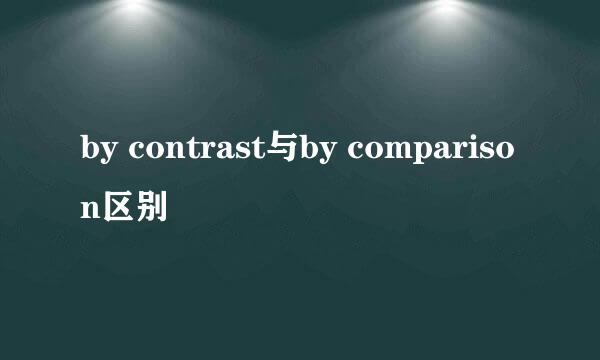by contrast与by comparison区别
的有关信息介绍如下:
前者侧重的是对比不同之处,后者则多是对于相似之物的比较。
1.compare指“通过比较,会发现事物之间的相似点,或不同之处”, 如:
It is interesting to compare their situation and ours.
把他们的状况与我们的相比很有意思。 (动词:“有意思”指的是有相似,也有不同)
2. We carefully compared the first report with the second.
我们仔细比较了第一份报告和第二份报告。(动词:两者对比)
3. My own problems seem insignificant compared with other people's.
与别人的问题相比,我自己的问题算不得什么。(动词)
comparison: N. 比较,对比
4. I enclose the two plans for comparison.
兹附上两份计划以供比较。
5. It is difficult to make a comparison with her previous book ─ they are completely different.
这很难与她以前的书相比——两者是截然不同的。
contrast 指两者之间的“对照”、“对比”, 发现其不同之处,尤其具有明显差异时,用contrast. 如:
6. It is interesting to contrast the British legal system with the American one.
把英国的法制与美国的加以对比很有意思。(动词:“有意思”更加指向差异性方面)
7. The boy's room is a complete contrast to the guest room.
这个男孩的房间和客房截然不同。(名词:两者对比差异)
8. Black hair is a sharp contrast to the fair skin.
黑发白肤形成鲜明的对照。(名词:对比鲜明)
by comparison with adv. 与...比较。
强调相同点,即相差不大。
by contrast with 和...成对照; 和...比起来。
by contrast对比起来,相比之下。
例子:
By contrast,Mary is much diligent than Tom.相比之下,玛丽比汤姆勤奋得多。
常用短语in contrast with/to和……形成对比,比较起来,后面接名词。
in contrast with 和...形成对比〔对照〕。



